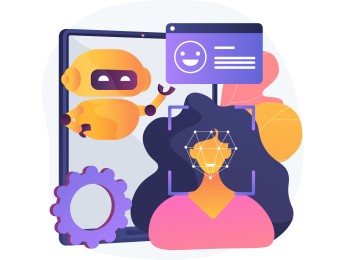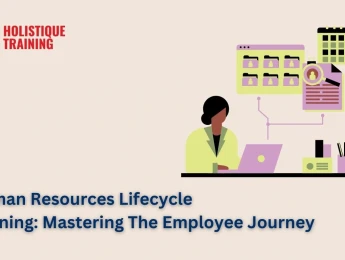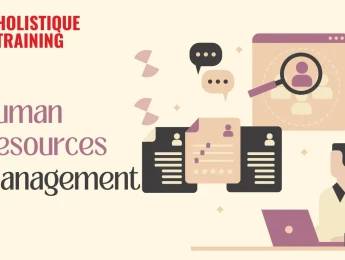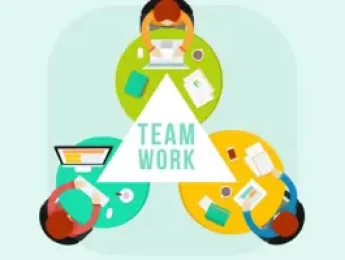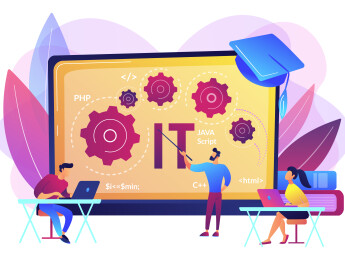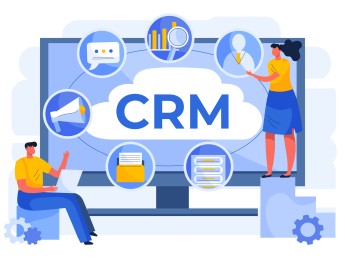The role of an HR Business Partner (HRBP) is central to modern organisations, where human capital is recognised as a key driver of success. As organisations grow and face increasingly complex challenges, the HRBP bridges the gap between human resources and business units, ensuring that HR strategies are supportive and integral to achieving broader organisational objectives.
HR Business Partners act as strategic intermediaries, fostering strong relationships with senior leadership and key stakeholders. By understanding the unique challenges and opportunities within each business unit, HRBPs design and implement tailored HR initiatives that directly contribute to business success. Their work transcends traditional HR functions, aligning talent management, workforce planning, and organisational development with the company’s strategic goals.
This course, Basic HR Business Partner Skills , is designed to provide a strong foundation for aspiring HRBPs or HR professionals transitioning into this strategic role. Participants will learn how to build effective partnerships with business units, develop and execute impactful HR strategies, and use data-driven approaches to contribute meaningfully to organisational growth. Whether you're new to the HRBP role or seeking to strengthen your skills, this course equips you with the essential tools to succeed in this pivotal position.
Upon completion of this course, participants will be able to:
- Investigate strategic approaches in Human Resource Management (SHRM).
- Exhibit a comprehensive understanding of employee resourcing, recruitment, and reward mechanisms.
- Explain optimal methods for addressing challenges with employees.
- Understand the nuances of performance management in diverse, multicultural settings.
- Formulate an appropriate model for managing change within their organisational context.
- Acquire insights into organisational culture and its impact on workplace dynamics.
- Recognise change management practices that may vary based on cultural contexts.
- Cultivate hands-on skills in the implementation of Organisational Development (OD).
This course is designed for anyone responsible for developing a structured and strategically focused HR department to help facilitate business operations.
- HR Business Partners
- HR Professionals
- Aspiring HR Professionals
- Administrators
- Data Analysts
- Business Analysts
- Business Owners
- Operations Managers
- Directors
This course uses a variety of adult learning styles to aid full understanding and comprehension. Participants will review various strategic frameworks to help implement new HR systems and processes. They will work together to target the main pain points in HR and discuss the best communication methods to resolve problems and unite departments.
They will also conduct role-playing activities to deal with conflict resolution and understand the psychology of workplace issues that may be brought to the attention of a HR department.
Day 5 of each course is reserved for a Q&A session, which may occur off-site. For 10-day courses, this also applies to day 10
Section 1: The History of Human Resource Management
- Evolution of Human Resource Management (HRM).
- Historical foundations and early practices in HRM.
- The impact of the Industrial Revolution on HRM.
- Role of personnel management in the 20th century.
- Emergence of modern HRM concepts.
- Influential theories and models in HRM history.
- Evolution of HRM practices in the UK.
- Key legislative milestones shaping HRM.
- HRM during economic and social changes.
- Globalisation's impact on HRM history.
- Historical perspectives on diversity and inclusion in HRM.
Section 2: Performance Management Across Various Departments
- Aligning performance goals across departments.
- Metrics and KPIs for diverse functional areas.
- Customised performance evaluation methods.
- Addressing unique departmental challenges.
- Continuous feedback systems implementation.
- Performance improvement plans tailored to functions.
- Promoting cross-functional collaboration.
- Technology solutions for streamlined performance.
- Integrating diversity and inclusion in goals.
Section 3: Recruitment & Resourcing
- Recruitment strategies and best practices.
- Job analysis and role definition.
- Effective sourcing methods.
- Applicant tracking systems (ATS) and recruitment software.
- Candidate assessment and selection techniques.
- Diversity and inclusion in recruitment.
- Legal and ethical considerations in hiring.
- Onboarding and induction processes.
- Social media and online presence in recruitment.
- International recruitment practices.
- Talent pipelining and succession planning.
- Recruitment metrics and analytics.
Section 4: Employee Rewards & Recognition
- Types of employee rewards: monetary and non-monetary.
- Incentive structures and performance-based rewards.
- Recognition strategies for employee motivation.
- Integrating R&R with performance management.
- Employee benefits and perks.
- Personalising rewards to individual preferences.
- Communication strategies for R&R programs.
- Technology tools for managing R&R.
Section 5: Dealing with Workplace Conflict
- Conflict resolution strategies
- Effective communication in conflict situations.
- Mediation techniques for workplace disputes.
- Managing personal biases in conflict resolution.
- Creating a positive and inclusive work environment.
- Constructive feedback in conflict resolution.
- Conflict prevention strategies.
Section 6: Employee Progression & Development
- Identifying employee strengths and weaknesses.
- Training and skill development opportunities.
- Mentoring and coaching for career growth.
- Performance feedback for professional improvement.
- Succession planning and talent development.
- Personalised learning paths for employees.
- Continuous professional development (CPD) strategies.
Section 7: Approaches to HR Change
- Change models and frameworks
- Communication strategies in HR change.
- Stakeholder engagement and management.
- Assessing organisational readiness for change.
- Overcoming resistance to HR change.
- Leadership's role in driving HR change.
Section 8: Understanding Human Psychology in the Workplace
- Behavioural psychology in organisational settings.
- Emotional intelligence for workplace success.
- Personality theories and workplace dynamics.
- Motivation and its impact on employee performance.
- Communication styles and workplace interactions.
- Stress management techniques for the workplace.
- Team dynamics and group psychology.
Upon successful completion of this training course, delegates will be awarded a Holistique Training Certificate of Completion. For those who attend and complete the online training course, a Holistique Training e-Certificate will be provided.
Holistique Training Certificates are accredited by the British Assessment Council (BAC) and The CPD Certification Service (CPD), and are certified under ISO 9001, ISO 21001, and ISO 29993 standards.
CPD credits for this course are granted by our Certificates and will be reflected on the Holistique Training Certificate of Completion. In accordance with the standards of The CPD Certification Service, one CPD credit is awarded per hour of course attendance. A maximum of 50 CPD credits can be claimed for any single course we currently offer.
- Course Code PH1-128
- Course Format Classroom, Online,
- Duration 5 days





